If any of you thought this group was going on vacation: sorry. There is an intensity to these days that is hard to describe. We are visiting as many places as possible and trying to take in the stories, the longings, the hopes, the celebrations, the fears.
Bishop Socrates said several times yesterday that the ALC and Church of India had two gifts to teach the rest of the church: ecumenism and dialogue. Just from what I’ve seen, I’d add justice.
One way to pursue justice is through education, and the Danish mission did that. Educating everyone. The DM Sec School at Thiruvannamalai has been respected as one of the best schools in the state for decades. It is the biggest school in the region (and in the Arcot Lutheran Church) with 1500 students, less than half of what it has had in the past. A priority on education has spread, and the number of schools has increased. The school is run by the ALC, the teachers paid for by the government, with Christianity as part of daily life there. Only 5% of the students are Christian.
The church’s Office of Dalit Concerns is right by the school. Look up “dalit” and you will see words such as “oppressed” or “untouchable.” Dalit comprise the majority of Christians here, and this office of the church addresses the societal oppression of that still exists in India due to the caste system. Dalit were the ones left out, not “worthy” of even having a caste. When the missionaries decided that caste could not co-exist with Christianity, it was revolutionary for the people. One pastor told me: “If not for the missionaries, me, my family, would all still be dalit. Their impact on this area has been incredible.”
Missionaries could not miss the status and treatment of women. There were a variety of circumstances where women would be left with two options: prostitution or suicide.
The missionaries provided a third option: assylum.
Their home was opened to them and their children. More quarters were built. Land was purchased, as were looms, giving them two ways to support themselves with dignity. Once known as the destitute women’s project, the Lebanon home still operates today.
Part of the idea is that if the women has children, she will earn money to educate them. Once educated, they can have their own home and income, and their mother can live with them. Then a spot opens for someone else.
Quo Vadis is the ALC’s center for interfaith dialogue. It is a vital effort to build interfaith understanding, bridges, relationships. While we visited, musicians from Arunachaleswarar Temple (Hindu) played for us – the only time they have played outside the temple grounds, and an official welcome to us. The hope of Bishop Socrates is to take this dialogue model and Quo Vadis international, along with the positive affacts it brings.
Some of us visited the temple in the afternoon, at the invitation of one if the high priests there. His family has been charged for generations with the care of the holiest of holies there, the only one by lineage allowed to touch that altar. We met with him in an open area. He is of the highest caste. He invited us because of his relationship with the head of Quo Vadis, a dalit. A remarkable bridge built intentionally through dialogue. Google the temple; the carvings, the grounds, its vastness is stunning.
If you didn’t believe my first sentence, consider this: this is not all we did on Monday. Just a glimpse. There other church visits, schools, ministries. Christianity may be a minority, and Lutherans even smaller, but their presence is immense. And their hearts and dreams for what God can do even bigger.
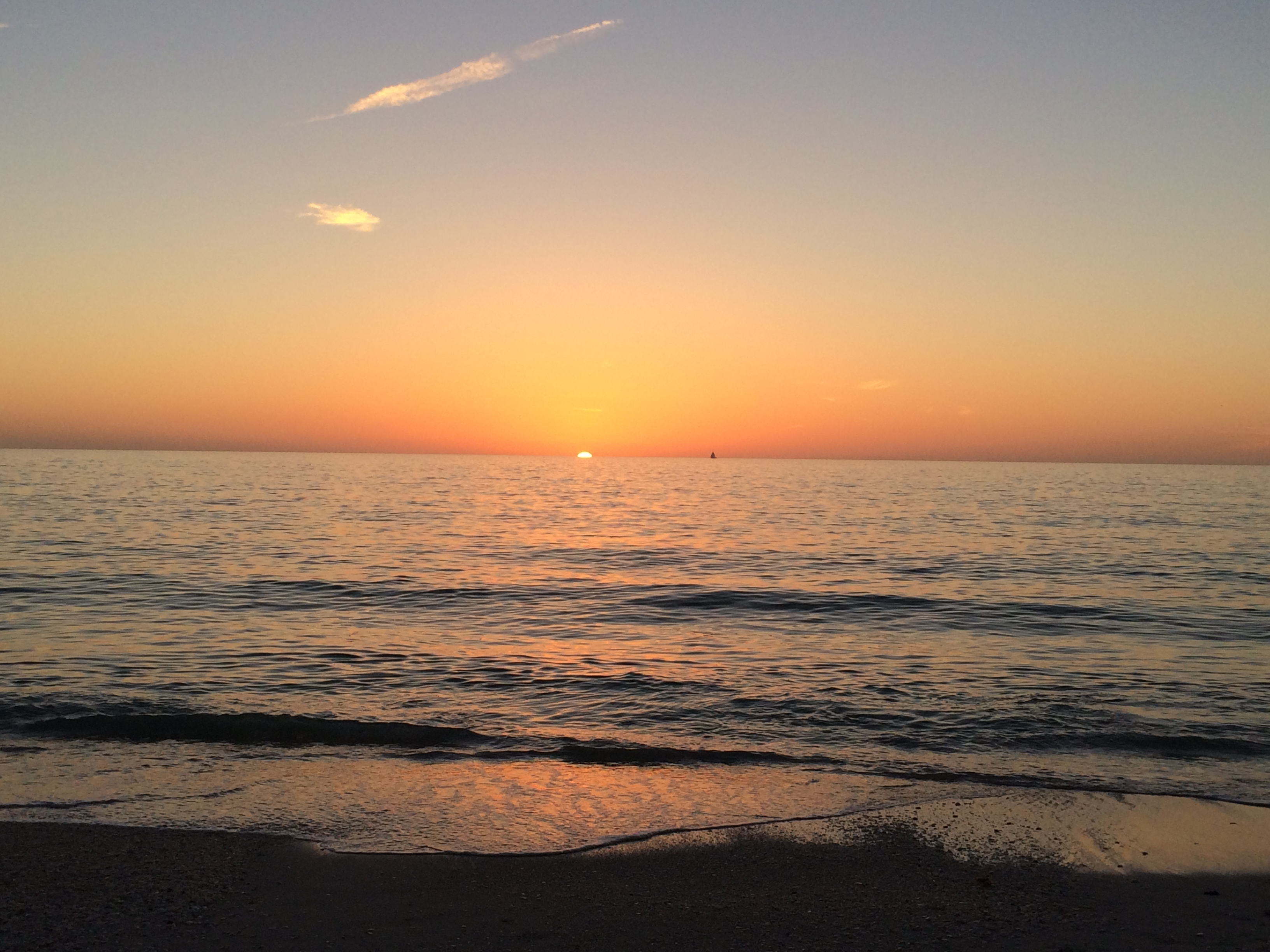
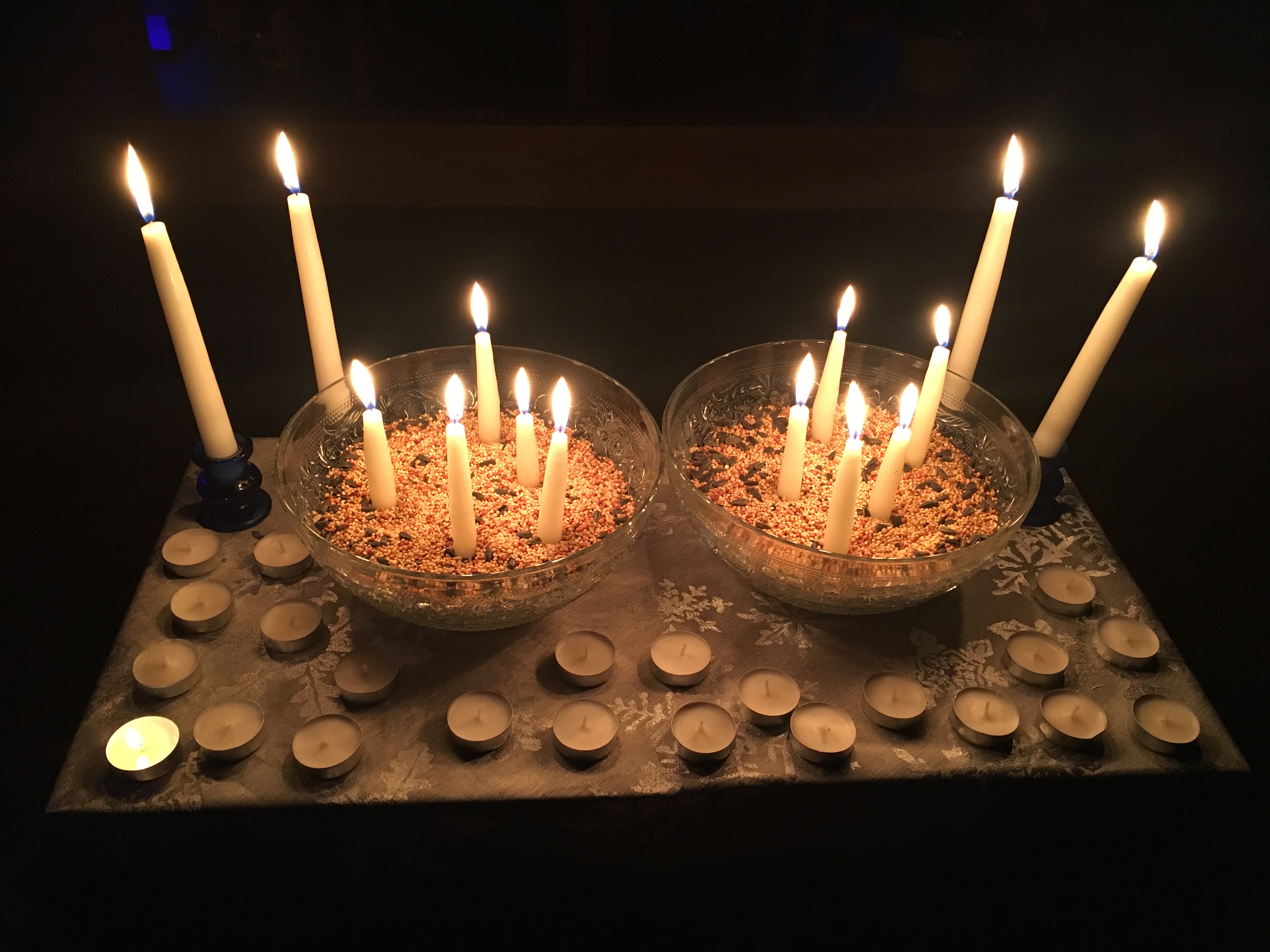
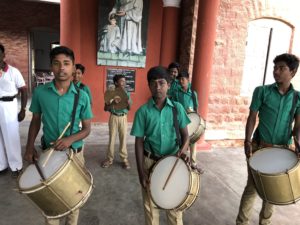
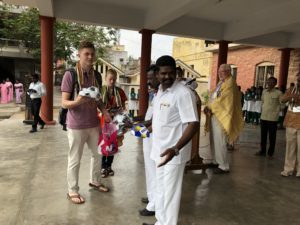
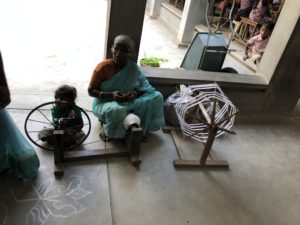
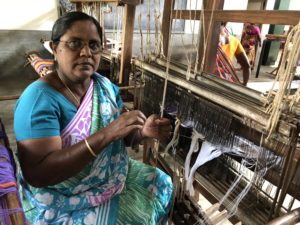
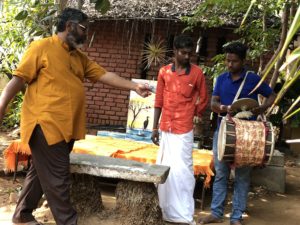
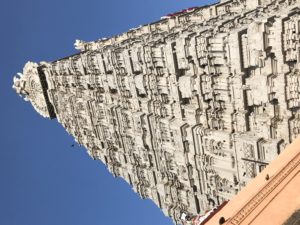

Linnea
February 13, 2018
Giving thanks that you have been given the opportunity to observe, share, learn, grow, give, receive. May God give you the time to absorb, process, use all you have seen, heard, experienced for his Glory and good works.